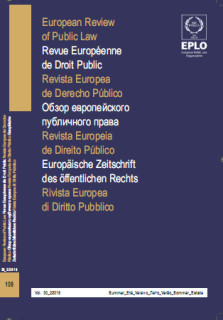
The Curious Case of Pál Aranyosi:
Precarious Balance or Manual on the Consolidation of Mutual Trust
and Fundamental Rights?
Doctoral Assistant at the University of Luxembourg (DTU REMS) and the University of Strasbourg
After a brief introduction of the relevant factual and legal context of the case, this commentary critically evaluates the constitutional and systemic value of Aranyosi. The assessment of the relations between mutual trust and fundamental rights, invites to understand mutual trust not as a rebuttable presumption but as a principle resulting from a structured legal mechanism. In that context, the distinction between the protection and the level of protection of fundamental rights is liable to alter the conflictual or harmonious coexistence of mutual trust with fundamental rights. While Aranyosi elevates the Charter to a hierarchical level conditioning the effects of mutual trust and thus guarantees the protection of the rights therein enshrined, it does not bring an answer to the potential application of higher national standards. Nevertheless, the role recognised to the national judge contributes to bring some elements of answer to that question and to nourish the reflexion on the articulation of different Union principles.
Après une brève présentation du cadre factuel et juridique pertinent de l’affaire, ce commentaire procède à une évaluation critique de la valeur constitutionnelle et systémique de l’arrêt Aranyosi. L’appréciation des relations entre la confiance mutuelle et les droits fondamentaux invite à comprendre la confiance mutuelle non pas comme une présomption réfragable mais comme un principe résultant d’un mécanisme juridique structuré. Dans ce cadre, la distinction entre la protection et le niveau de protection des droits fondamentaux est susceptible d’affecter la coexistence conflictuelle ou harmonieuse de la confiance mutuelle et des droits fondamentaux. Alors que l’arrêt Aranyosi élève la Charte à un niveau hiérarchique qui conditionne les effets de la confiance mutuelle et garantit donc la protection des droits qu’elle consacre, il n’apporte pas de réponse à l’application potentielle de standards nationaux plus élevés. Cependant, le rôle reconnu au juge national contribue à apporter quelques éléments de réponse à cette question et à nourrir la réflexion sur l’articulation de différents principes de l’Union.





















